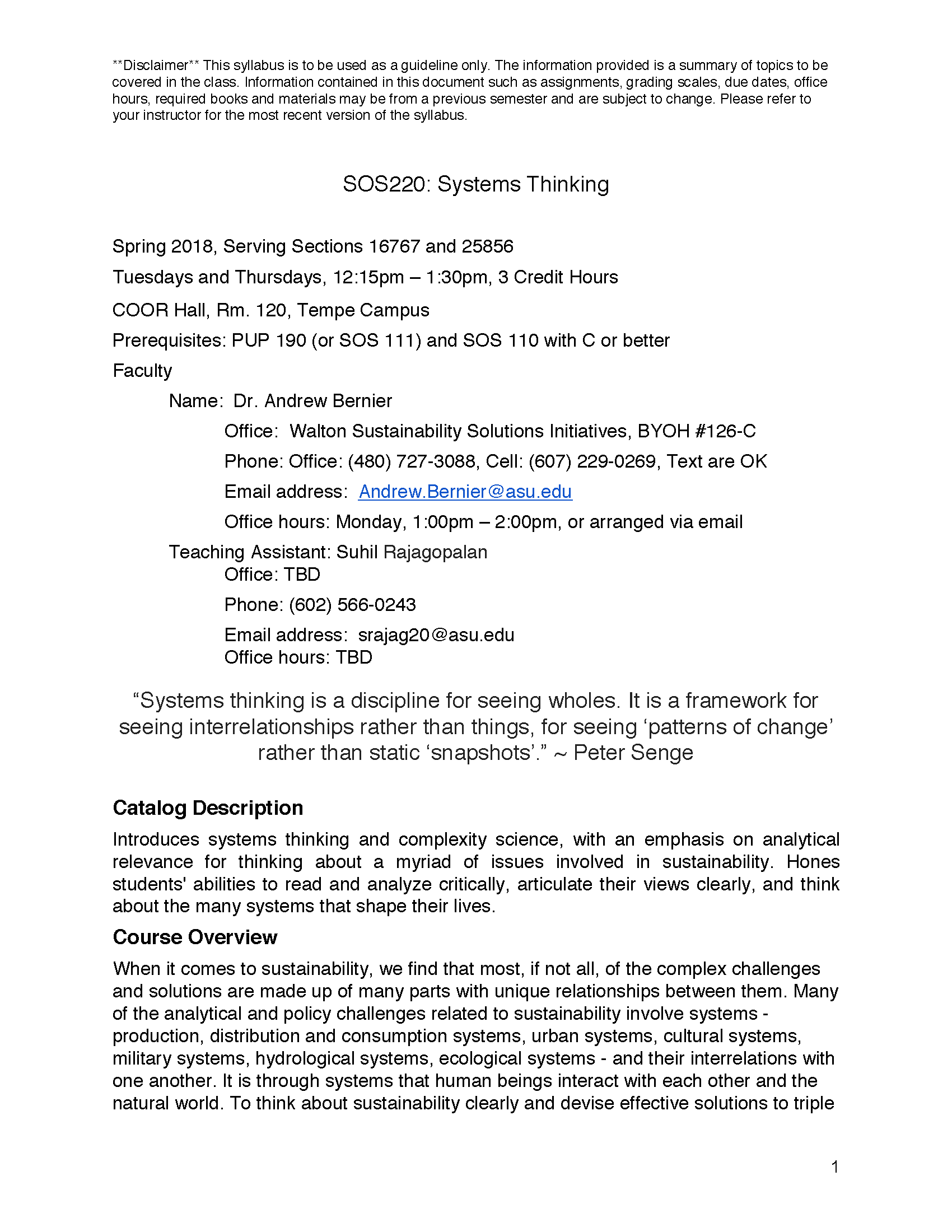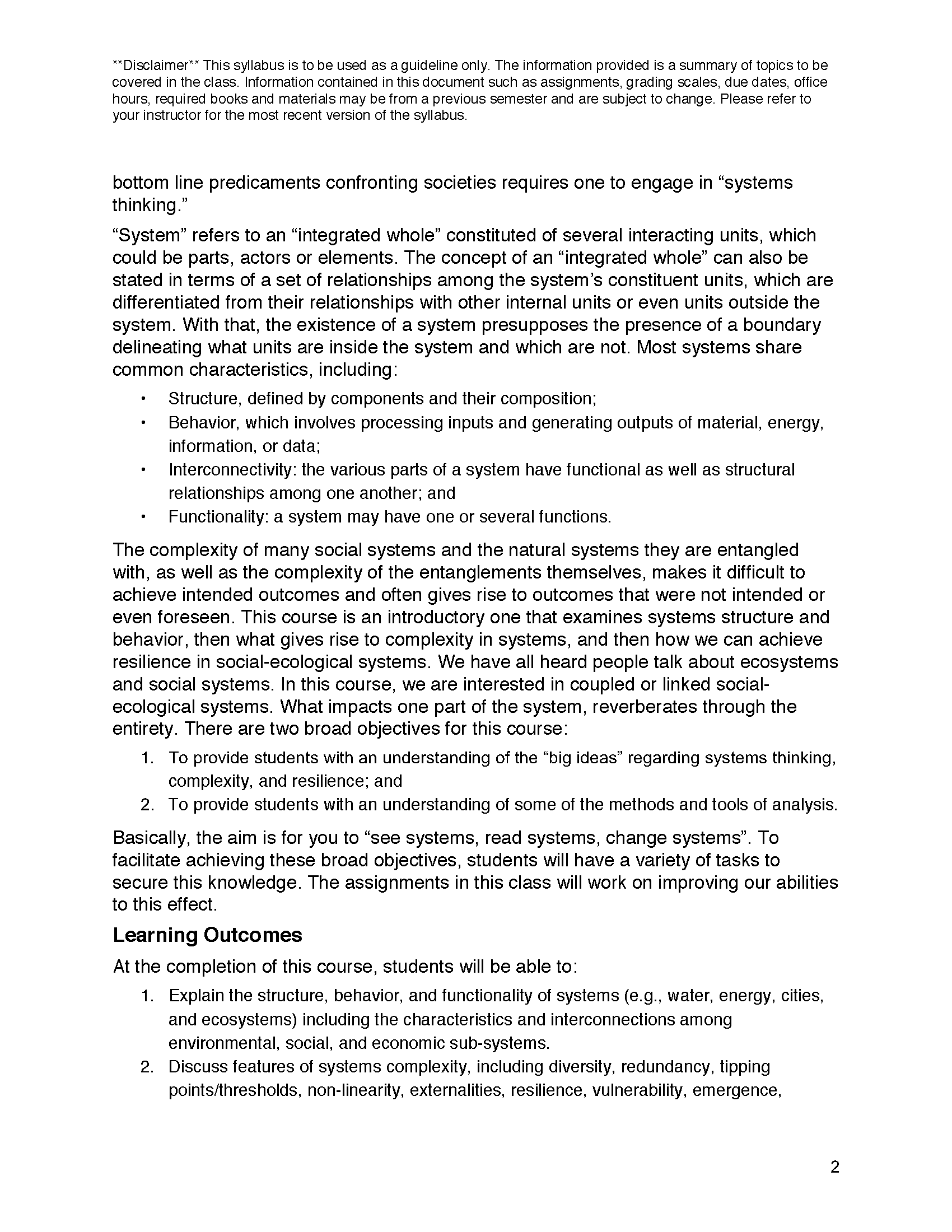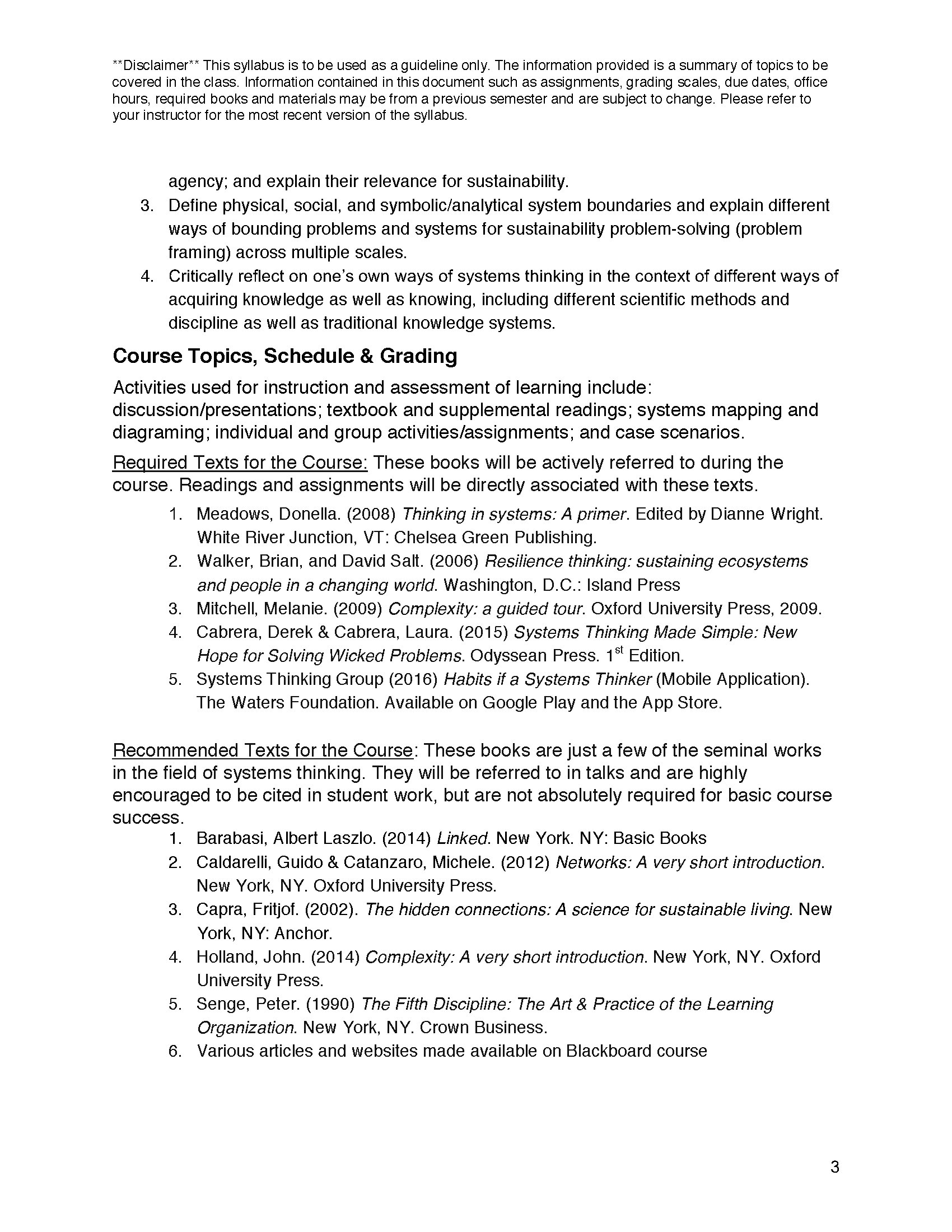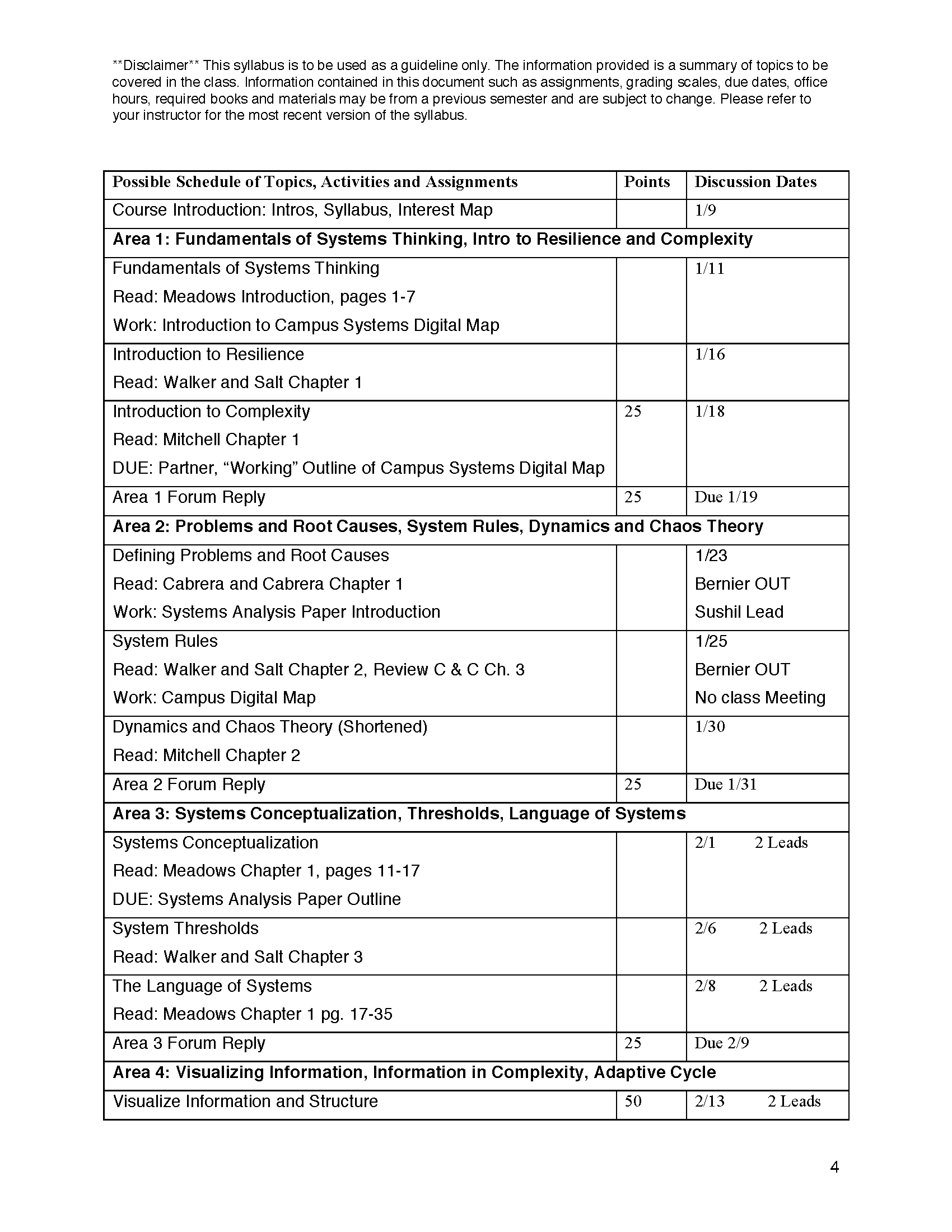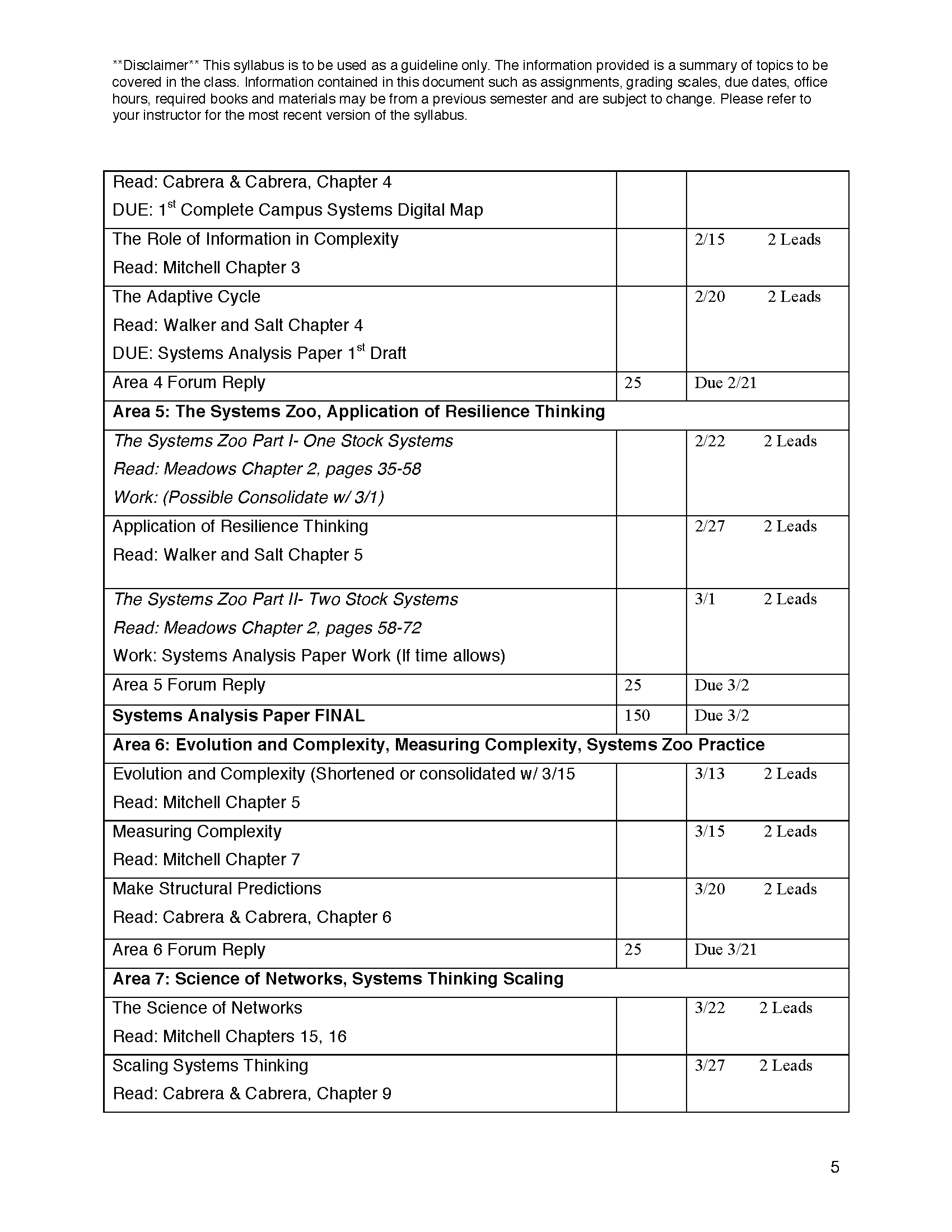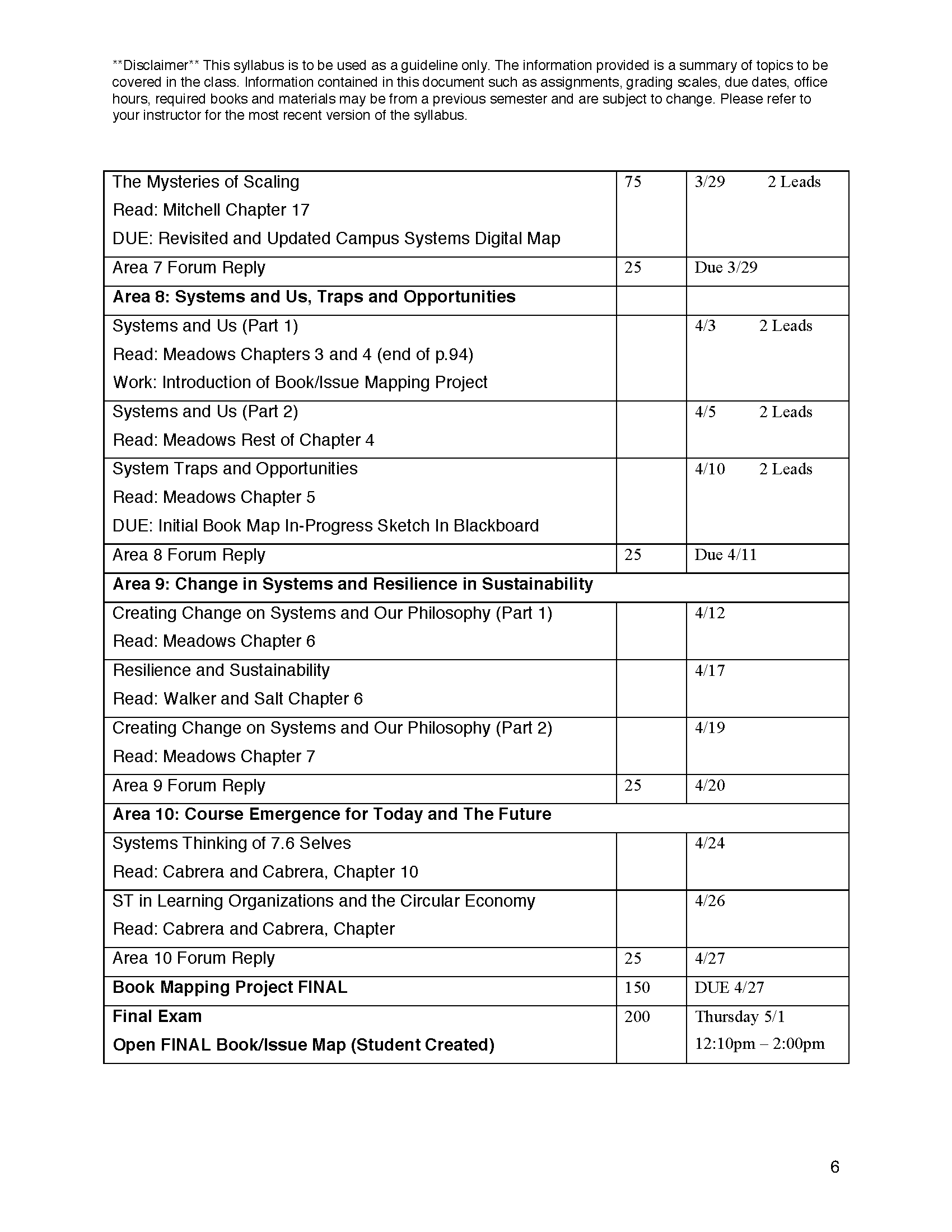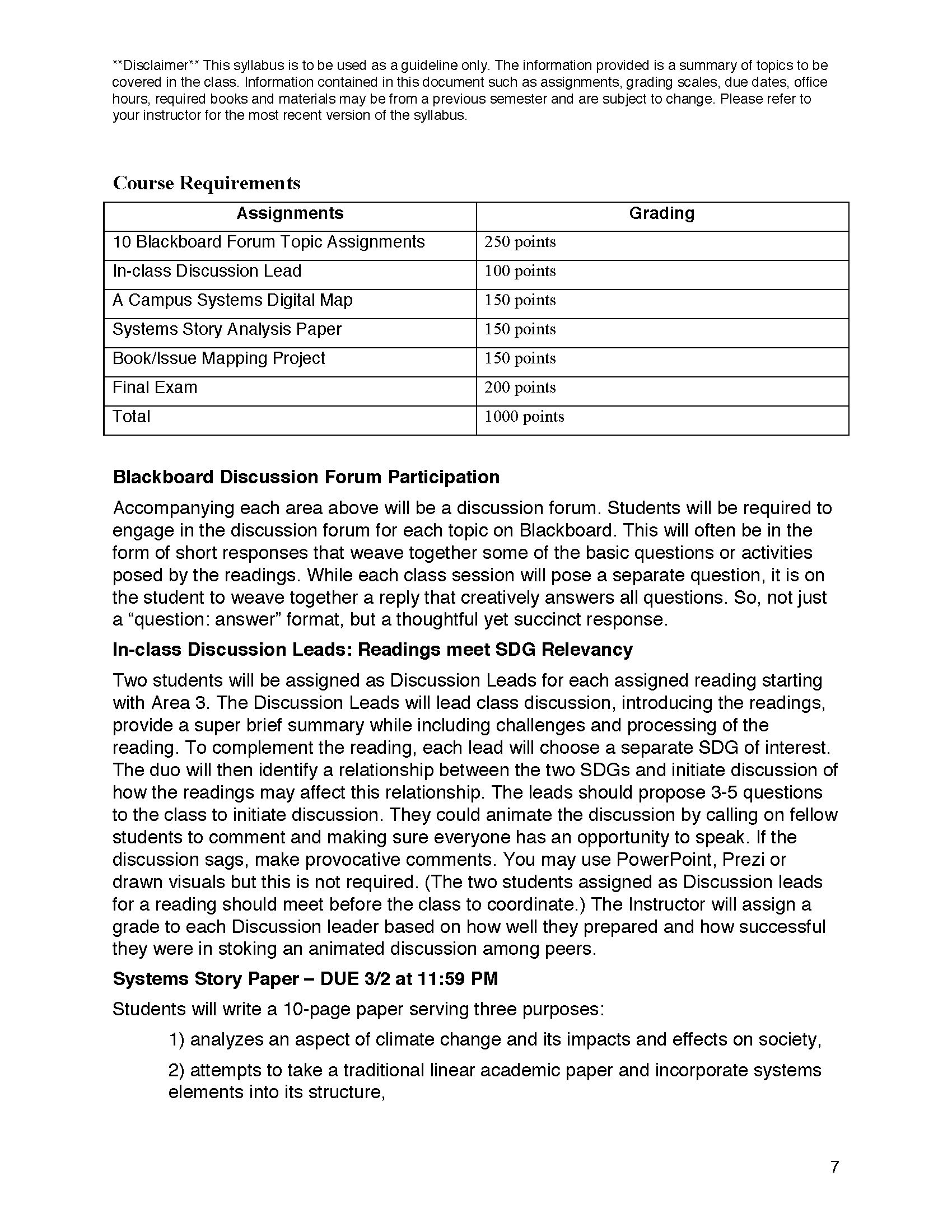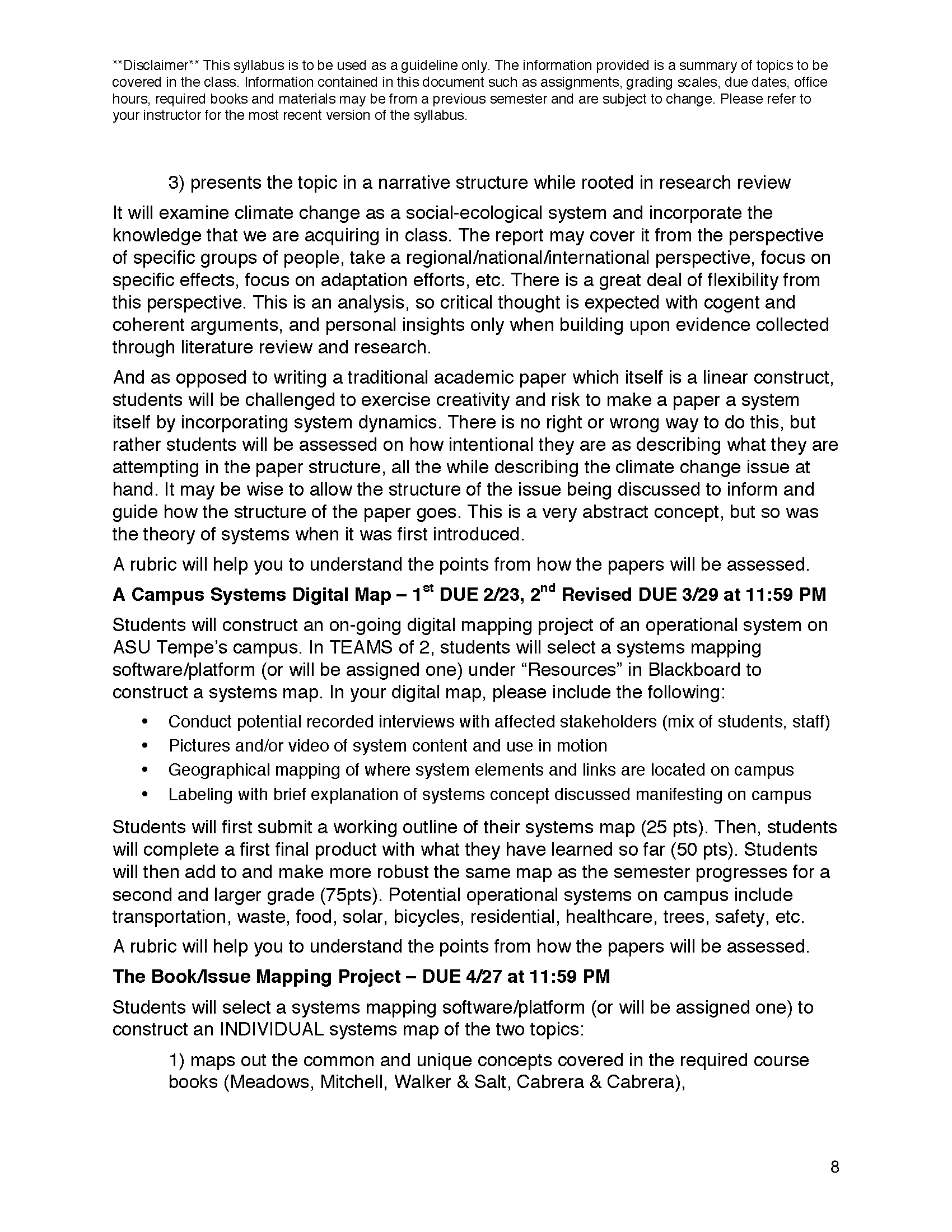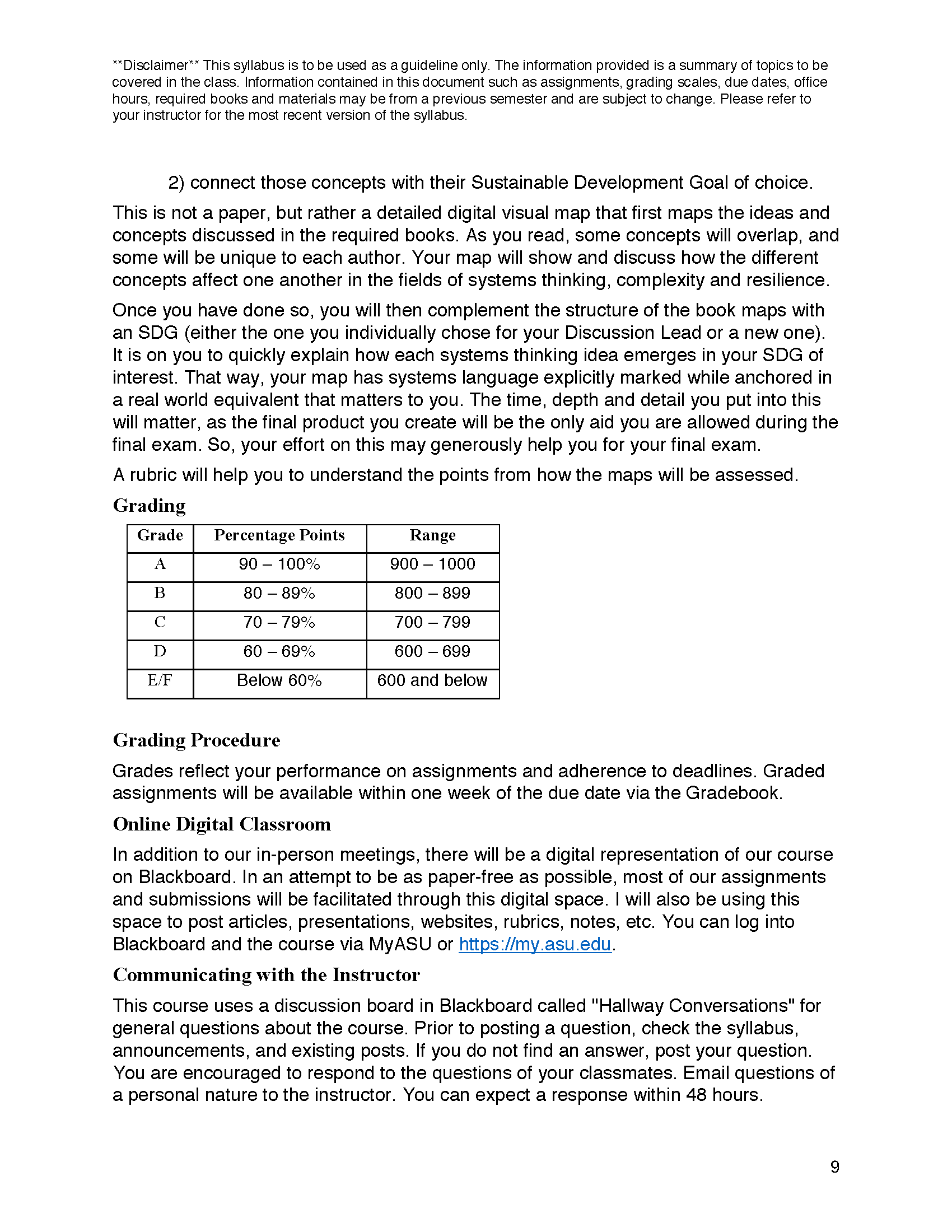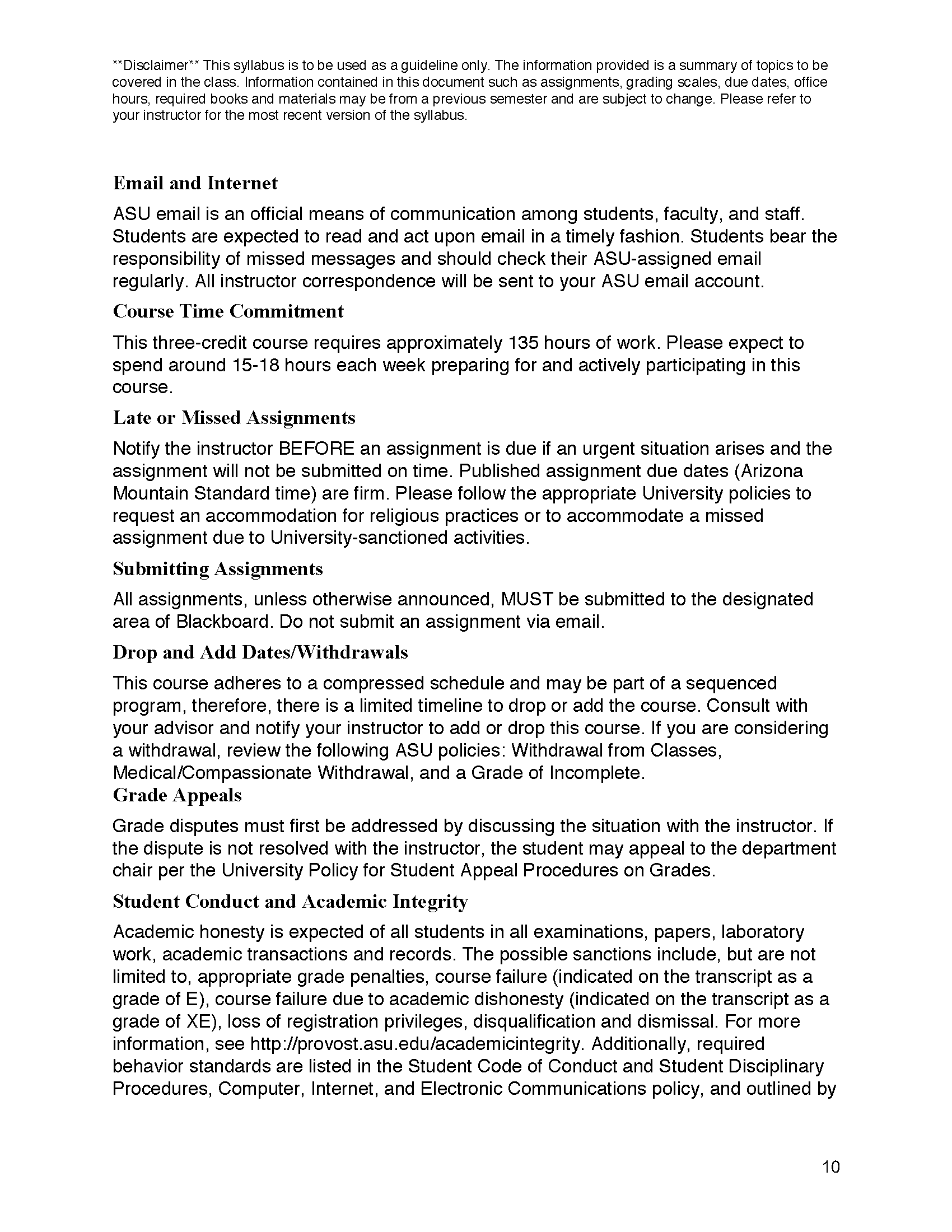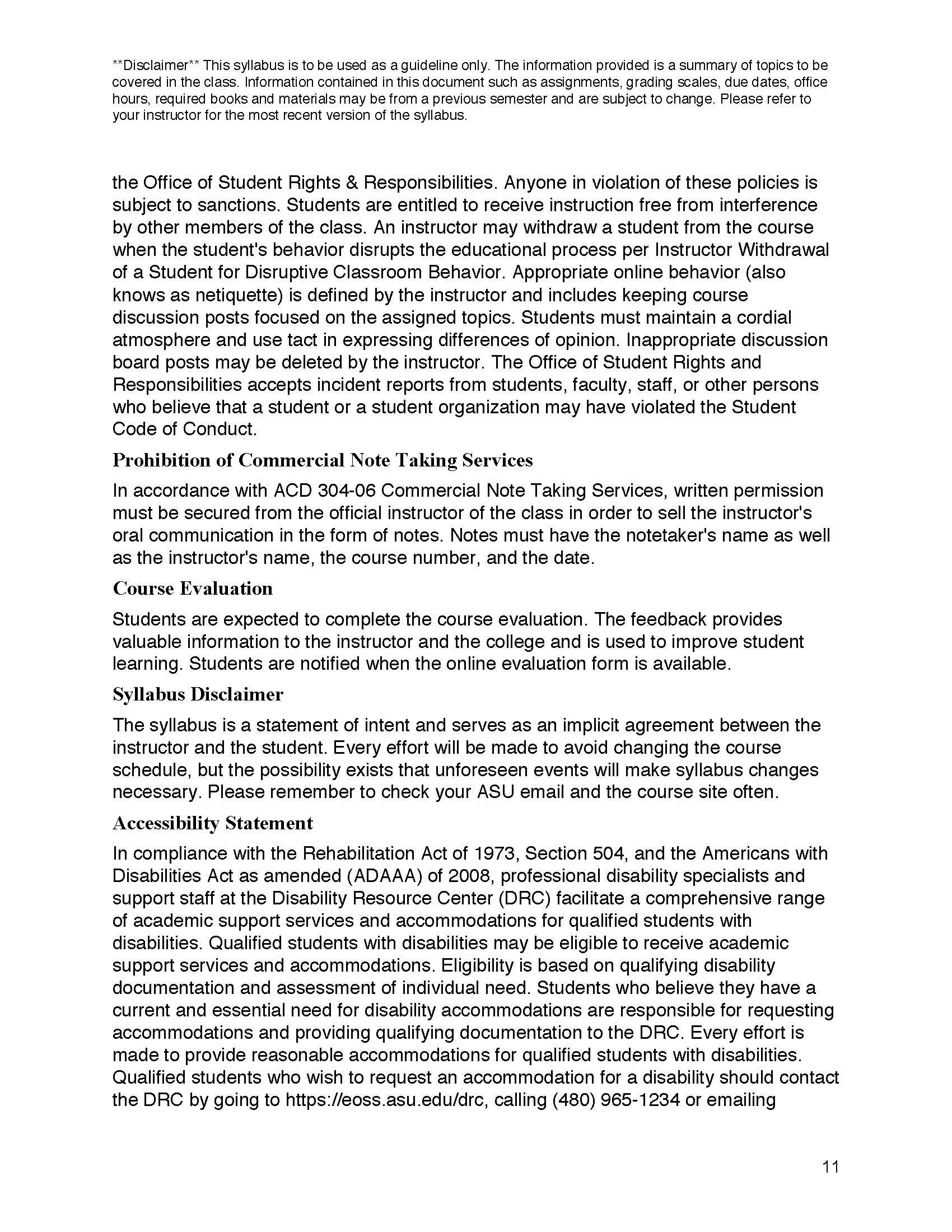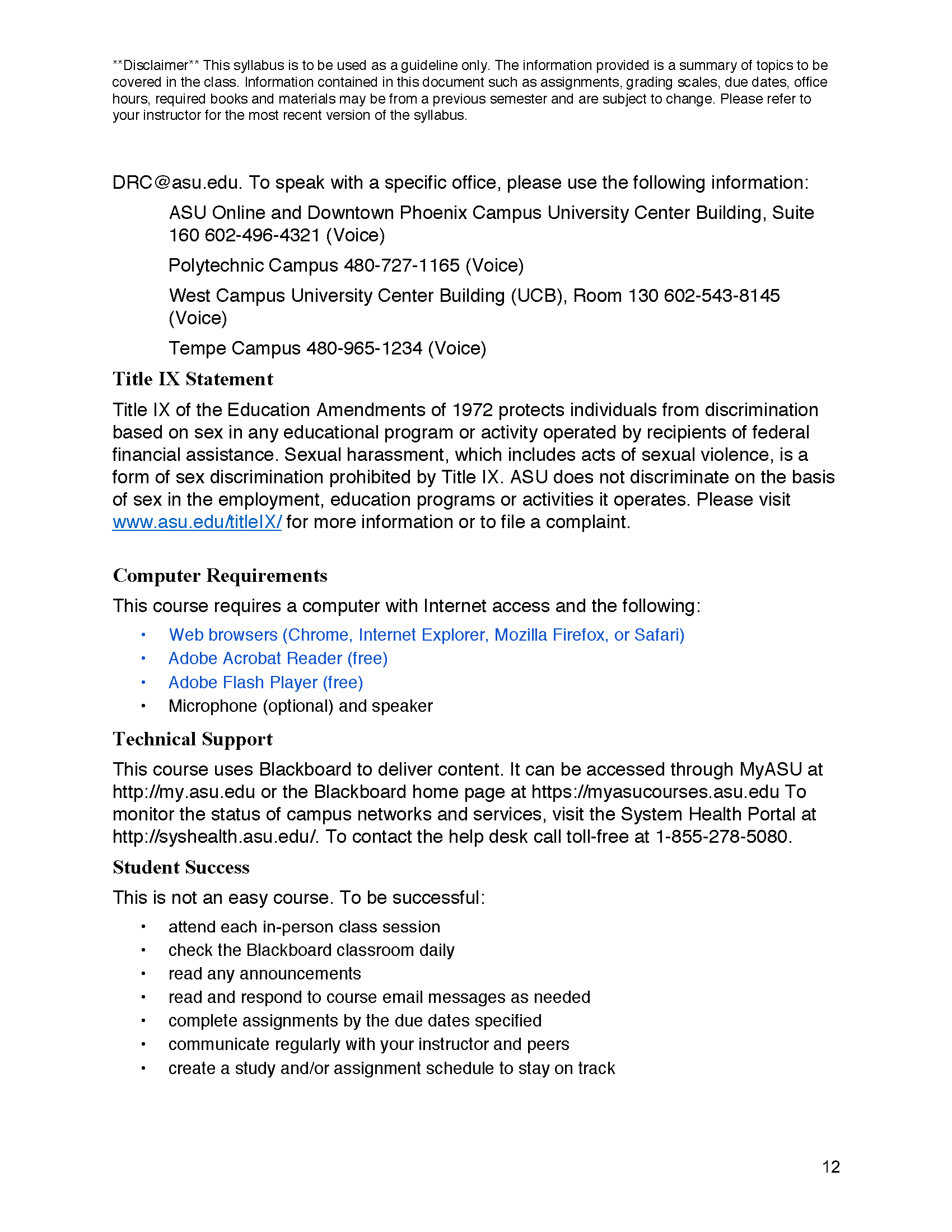Exemplar Type: COURSE
Title: Systems Thinking
Grades: 11-12, Undergrad
Discipline:
Submitted By: Andrew Bernier
Catalog Description: Introduces systems thinking and complexity science, with an emphasis on analytical relevance for thinking about a myriad of issues involved in sustainability. Hones students' abilities to read and analyze critically, articulate their views clearly, and think about the many systems that shape their lives.
Course Overview: When it comes to sustainability, we find that most, if not all, of the complex challenges and solutions are made up of many parts with unique relationships between them. Many of the analytical and policy challenges related to sustainability involve systems - production, distribution and consumption systems, urban systems, cultural systems, military systems, hydrological systems, ecological systems - and their interrelations with one another. It is through systems that human beings interact with each other and the natural world. To think about sustainability clearly and devise effective solutions to triple bottom line predicaments confronting societies requires one to engage in “systems thinking.” “System” refers to an “integrated whole” constituted of several interacting units, which could be parts, actors or elements. The concept of an “integrated whole” can also be stated in terms of a set of relationships among the system’s constituent units, which are differentiated from their relationships with other internal units or even units outside the system. With that, the existence of a system presupposes the presence of a boundary delineating what units are inside the system and which are not.
BENCHMARKS REPRESENTED IN THIS EXEMPLAR
Big Ideas
Diversity makes complex life possible. It assures resilience in living systems
All systems have limits. Healthy systems live within their limits. Tap the power of limits
Every system is perfectly formed to get the results it gets
The changes to the Earth’s surface environments made by human activity are causing unintended consequences on the health and well-being of human and other life on Earth (proposed Anthropocene Epoch)
The significant problems we face can’t be solved with the same thinking we used to create them. Our prior experiences with the world create cognitive frameworks (also known as mental models/maps) that inform what we can perceive. They shape our behavior and our behavior causes results. If we want to produce different results, it all begins with a change in thinking
There is no beginning or end in a system. Intervene where there are favorable conditions, i.e., where and when possible
We must pay attention to the results of our thinking and behavior on the systems upon which we depend if we want to thrive over time. Read the Feedback
Higher Order Thinking Skills
Emergent: Creative Thinking
Emergent: Design Thinking
Complex: Critical Thinking
Complex: [Living] Systems Thinking
Applied Knowledge and Actions
Laws and Principles that govern the physical and biological world
System Dynamics and Change
Multiple Perspectives
Dispositions
Curious
Imaginative
Mindful
Applications and Actions
Engage in Dialogue
Engage in Role-Playing, Learning Journeys, Simulations & Games
Plan Scenarios
Design for multiple pathways, resilience and reinforcement
Design for whole systems integrity with ecological principles and physical laws in mind
Envision, strategize and plan
Use creative tension to resolve conflicts



